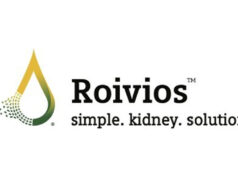
In early October, Novo Nordisk announced they will stop the kidney outcomes trial FLOW at interim, after initial results and the recommendation from the independent data monitoring committee (DMC). Their recommendation concluded that the results from an interim analysis met pre-specified criteria for stopping the trial early for efficacy.
FLOW is a randomised, double-blind, parallel-group, placebo-controlled, superiority trial that compares injectable semagludite 1.0mg with placebo as an adjunct to standard of care on kidney outcomes for prevention of progression of renal impairment and risk of renal and cardiovascular mortality in people with type 2 diabetes and chronic kidney disease (CKD). After being initiated in 2019, the trial now has 3,543 people enrolled across 28 countries and over 400 investigator sites.
Prior to this trial taking place, there had also been concerns raised regarding possible side effects of Ozempic (Novo Nordisk), with the US Food and Drug Administration (FDA) announcing that they are adding a warning of ileus—intestinal blockages—to the label of the drug. The FDA received over 8,500 reports of gastrointestinal issues among people using medications like Ozempic and other similar drugs that contain semagludite, with ileus being mentioned in 33 of those cases, and death occurring in two cases.
After Novo Nordisk announced they were stopping the trial early due to meeting the efficacy criteria, dialysis service provider DaVita shares were down 12% in after-hours trading. Shortly following this slump in their shares, DaVita issued a release stating that they’ve “been closely monitoring the developments related to GLP-1s [glucagon-like peptide 1], and are excited about the potential benefits this class of drugs could have on society and patients with kidney disease”. They continued by saying that: “Although it is nearly impossible to draw any conclusions from the FLOW study at this point because the study results have yet to be released, based on the inclusion criteria for study participants, we believe there may be limited application of the FLOW study findings to the overall CKD patient population.”












